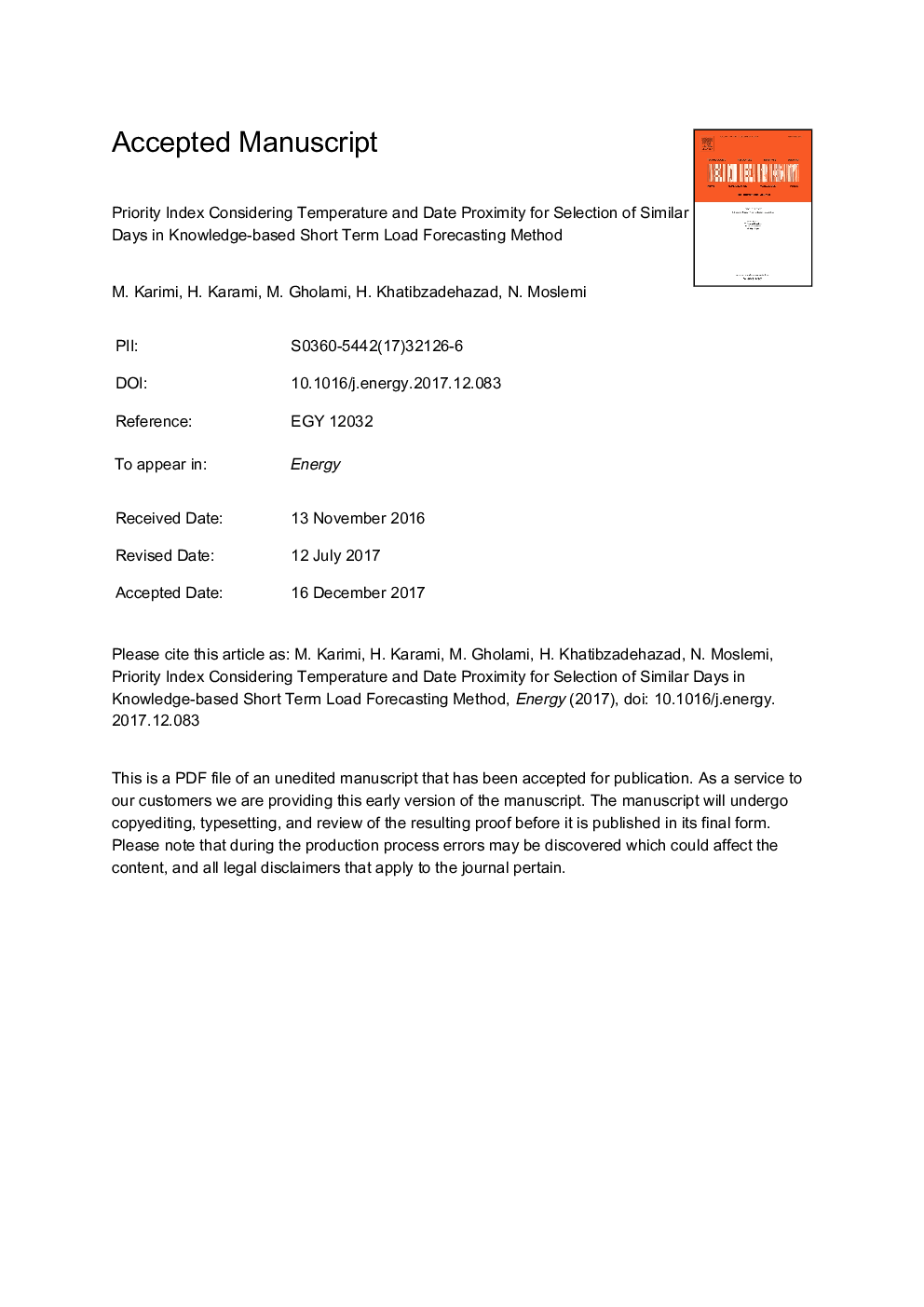| Article ID | Journal | Published Year | Pages | File Type |
|---|---|---|---|---|
| 8072392 | Energy | 2018 | 19 Pages |
Abstract
Short term load forecasting (STLF) is one of the important issues in the energy management of power systems. Increasing the accuracy of STLF results leads to improving the energy system scheduling and decreasing the operating costs. Different methods have been proposed and applied in the STLF problem such as neural network, fuzzy system, regression-based and neuro-fuzzy methods. This paper investigates the knowledge-based method that has less computation time and memory compared with other methods. The accuracy of knowledge-based STLF method is improved by proposing a novel priority index for selection of similar days. In this index, temperature similarity and date proximity are simultaneously considered. In order to consider the effect of temperature in STLF more efficiently, the system is partitioned into the smaller regions and the STLF of the whole system is calculated by gathering the STLF of all regions. The proposed method is implemented on a sample real data, Iran's national power network, to show the advantages of the proposed method compared with Bayesian neural network and locally linear neuro-fuzzy methods in aspects of accuracy and computation time. It is shown that the proposed method decreases yearly mean absolute percentage error (MAPE), and generates more reliable load forecasting.
Related Topics
Physical Sciences and Engineering
Energy
Energy (General)
Authors
M. Karimi, H. Karami, M. Gholami, H. Khatibzadehazad, N. Moslemi,
